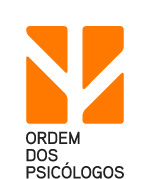FAQ
1. Registration
- 1.1 Do teachers in higher education or researchers that possess training in accordance with Article 51 of Law 57/2008 need to register with the OPP (Ordem dos Psicólogos)?
Yes, if within the scope of their activity as teachers or researchers they carry out duties which belong to the professional practise of psychology, such as psychological assessment, supervision/guidance, psychological intervention, consultancy, providing opinions, public use of professional identity (such as commenting in the media), basic and applied research (i.e. the development of psychological assessment instruments).ns Committee.
- 1.2 My name is not listed on the electoral register. Can I still vote?
It depends. If you believe that you fulfill all the legal obligations to vote in the first elections of the Order and your name is not listed on the electoral register, you can lodge a complaint. If your complaint is deemed to be valid, you may be included on the electoral register and therefore vote in the elections. Conversely, if any problem is found regarding your application, namely if a document is missing or any other requirement has not been met, you may not be included on the register. All complaints shall be analysed and answered within the legal time limits. You may consult the deadline for lodging a complaint on the electoral calendar.
- 1.3 I have registered as a Trainee, can I vote?
No. In accordance with Law 57/2008 you cannot vote as a trainee member.
- 1.4 I have been practising psychology for a number of years, should I register with the OPP?
Yes. The title of psychologist, its use and professional practise, in any activity sector, requires registration with the OPP as a full member. In accordance with Article 1, point 2, of the OPP Registration Regulations , “a person cannot use the title of psychologist or trainee psychologist until they have registered as such with the Order.”
- 1.5 What are the requirements for registering with the OPP?
Pursuant to Law Nº 57/2008, of the 4th September, Article 51, sub-headings a), b), c) and d), copied to the OPP Registration Regulations, point 1, the following can register with the Order.
a) Psychology graduates who hold a Bachelor’s Degree and a Master’s Degree in Psychology;
b) Psychology graduates who have completed a four or five year-long degree course, prior to the 31st December 2007;
c) National professionals from other European Union Member States, who hold the professional academic qualifications legally required to practise the profession in their respective State of origin;
d) Nationals from other States that under conditions of reciprocity obtain equivalence under the terms of the law in force.- 1.6 What is the registration procedure for the OPP?
To register with the OPP the online application form must be filled in which can be found on the www.ordemdospsicologos.pt website where all the steps must be followed at each stage. The documents necessary to validate the application for registration shall be shown upon filling in the form. Registration in person may be done only under special circumstances and by prior arrangement by telephone.
- 1.7 Which documents are necessary for registration?
All the documents that the computer system deems to be essential upon filling in the online application form. The documents are duly identified in Annexes II and III of the OPP Registration Regulations. In some cases, the documents listed in Annexes IV and V may also be requested.
- 1.8 I hold a pre-Bologna Degree in Psychology, but only finished it after the 31st December 2007. Does this mean that I do not fulfill the requirements to register with the OPP?
Applications for registration may be accepted for pre-Bologna Psychology degree holders whose degree was only concluded after the 31st December if the Admissions Committee decides that the study programme is deemed to be equivalent to the conclusion of Bachelor and Master higher education studies in Psychology.
- 1.9 I performed my training abroad: which additional documents must I submit with my online application form?
The documents to be submitted shall be shown by the computer system when you fill in the online application form. Depending on whether you concluded your studies within the European Union or not, different documents are required (we recommend that you read Annexes IV and V of the OPP Registration Regulations). In either case, you must have the following documents:
a) Documentary evidence that recognition or equivalence of the foreign academic qualification has been obtained, pursuant to the applicable legislation for the recognition and equivalence of foreign academic qualifications;
b) A Curriculum Vitae prepared and written confirming the lawful and effective practise of the profession of psychologist.- 1.10 What is the difference between a professional certificate and professional credentials?
A Professional Certificate is a document that confirms the recognition of professional skills. In this case, pursuant to Article 53 of Law Nº 57/2008 (which creates the OPP and approves its Statute), the Psychologist’s Professional Certificate, which is mandatory in order to practise the profession, is signed by the President and can only be issued by the OPP to registered professionals. Professional credentials used to be an optional document in the case of psychologists, issued by the General Labour Inspectorate (Ministry of Labour and Social Solidarity), which recognised the necessary qualifications to practise the profession. The General Labour Inspectorate ceased issuing Professional Credentials when Law Nº 57/2008 came into force in October 2008, it now being the OPP’s responsibility to issue the Certificate for Psychology professionals.
- 1.11 What do I have to do to obtain my Professional Certificate?
You need to register with the OPP and after your application has been assessed by the Admissions Committee and approved by the Board, a Professional Psychologist Certificate shall be issued, with the respective identification number. You can only practise your profession as a Psychologist with this document in your possession.
- 1.12 Can I obtain a Professional Certificate while I am carrying out my professional internship?
Yes. Taking into account the answer to question 1.8, and in compliance with Article 8, point 2 of the OPP Registration Regulations, “The status of professional trainee is certified by a specific certificate, which expressly mentions such status, the issuing procedure being identical to that for a full member certificate, with the necessary alterations.” In this specific case, the Declaration issued by OPP’s Foundation Committee, following assessment of the application for registration by the Admissions Committee and approval by the Board, shall take into account the status of “professional trainee”.
- 1.13 What is the deadline for registration?
During the current mandate of the OPP’s Foundation Committee and in compliance with Article 82, point 4 of Law Nº 57/2008, the mandatory deadline for all practising professionals to register is the 15th February 2010. After that date, psychologists cannot exercise their voting rights in the Order’s first elections, given that elections shall be called for the Order’s national bodies and the electoral registers shall be closed (Article 13, point 1 of Law Nº 57/2008). From that date, psychologists may also have to undergo an accreditation process or professional internship, depending on their specific situation, in that we draw your attention to it being mandatory to register with the Order, while you are practising professionally as a psychologist.
- 1.14 How much does it cost to register?
Payment due upon registration is 180 Euros. APOP members with their fees in order until 2008 shall be entitled to a discount of € 50 for the first 2 months after the registration period has begun.
- 1.15 How much is the monthly fee?
Pursuant to Article 26 and sub-heading b) of Article 27 of Law Nº 57/2008, it is the responsibility of the OPP Assembly of Representatives to set a monthly fee. As the first OPP elections have not yet been held, the Assembly of Representatives has not yet been elected, therefore, we cannot yet confirm the amount.
- 1.16 If I stop practising Psychology, can I suspend my registration at the Order?
Yes. If you do not practise the profession or wish to suspend its practice for a given period of time, you should send a written request to the Order’s head office, stating that you wish to suspend your registration and attach the following to the request: a) Declaration signed, which is available in the menu Documents - Minutes and b) your Professional Licence. You must also pay all fees up to the time of the request for suspension. For example: if the request for suspension of the registration (Request and Professional Licence) arrives at the Order with a posting date of up to 07/02/2012, after the analysis and approval from the Board, the Member will be exempt from the payment of fees from 01/02/2012. If the request for suspension of the registration arrives at the Order with a posting date from 08/02/2012 to 07/03/2012, after the analysis and approval from the Board, the Member will be exempt from the payment of fees from 01/03/2012.
Once your request for suspension has been approved, the Ordem dos Psicólogos will notify you and you will not be allowed to use the title of psychologist and, as a consequence, not practise..
In the compliance with the Regulation of Fees and Charges of the Ordem dos Psicólogos, you can reactivate your registration, at any time, with the payment of 75€..- 1.17 If I do not work in the field of Psychology, should I register with the Order?
If you fulfill all the requirements to register with the OPP as a full member, even if you do not work in the field of Psychology, you should consider whether you shall do so in the near future, because if you decide at any time to begin your professional career as a psychologist, you are obliged to have a Professional Certificate entitling you to do so; if you are registered and decide to suspend your registration for a period of time, it will be easier to rectify your situation; and we would like to draw your attention to the fact that if you do not register by the 15th February 2010, you may have to undergo an accreditation process or professional internship, depending on your specific situation.
- 1.18 Is a psychologist intern’s registration process different from that of fully qualified psychologists?
No. Except for the adaptations necessary, the psychologist intern’s registration process is the same as the one used for fully qualified psychologists.
- 1.19 If I cannot go to the OPP personally to deal with issues related to my process, can I ask someone else to go?
Yes, as long as the person takes a declaration with a photocopy of the ID/Citizen’s Card of the psychologist and the person who goes to the offices. The declaration must contain the following data: A) full name and number of the ID/Citizen’s Card of the psychologist, and B) full name and number of the ID/Citizen’s Card of the person who the psychologist authorises to deal with their matters.
- 1.20 If at any time I temporarily cease to practise as a psychologist, can I suspend my registration and be exempt from paying fees?
Yes. There are restrictions, however, to the conditions in which to do so which have not yet been established.
- 1.21 I come from a member state of the European Union where I did my training, do I need to present any document other than those mentioned above?
Yes. You must present the documents specified in AttachmentIV of the OPP Internship Regulations, meaning:
- 1. If the practising of the profession of psychologist is regulated in the member state of origin, the party who wishes to register at the Order must present, in addition to the information mentioned in Attachment II, of the OPP Registration Regulations, and in paragraph b) of Attachment III, a declaration of competence or training title required by the member state in question for the practising of the profession of psychologist, as long as:
- 1. It is issued by the authority of the member state in question with such competence;
- 2. The level of professional qualification is proven to be at least equivalent to the level immediately below that required on national territory.
- 2. If the practising of the profession of psychologist is not regulated in the member state of origin, the party who wishes to register at the Order must present, in addition to the information mentioned inAttachment II, of OPP Registration Regulations,, and in paragraph b) of Attachment III, one or more declarations of competence or one or more training qualifications and:
- 1. It must be issued by the authority of the member state with such competence;
- 2. The level of professional qualification is proven to be at least equivalent to the level immediately below that required on national territory;
- 3. The full-time practising of the profession of psychologist is proven during a minimum period of at least two years, in the last ten years.
- 1. If the practising of the profession of psychologist is regulated in the member state of origin, the party who wishes to register at the Order must present, in addition to the information mentioned in Attachment II, of the OPP Registration Regulations, and in paragraph b) of Attachment III, a declaration of competence or training title required by the member state in question for the practising of the profession of psychologist, as long as:
- 1.22 Is the registration process different for trainee psychologists from practising psychologists?
No. With the exception of the necessary alterations/adaptations, the registration process for trainee psychologists is the same as that for practising psychologists.
- 1.23 I come from a country outside the European territory, which documents must I present?
Yes. You must present the documents specified in Attachment V of of the OPP Internship Regulations namely:
- 1. Psychologists from States which are not members of the European Union,, which are not covered by Directive n.º 2005/36/CE,of the European Parliament and Council of the 7th of September, who wish to practise the profession in Portugal, must present, in addition to the information detailed in Attachment II, of OPP Registration Regulations,and in paragraph b) of Attachment III,the following documents:
- 1. Proof of professional conduct issued by the competent authority for the registration and disciplinary control of psychologists in the country of origin or provenance, stating that the holder is able to exercise, under legal conditions, the profession without restrictions and that there are no pending disciplinary proceedings or disciplinary sanctions applied;;
- 2. Certificate of reciprocity..
- 2. Unless otherwise decided by the Technical Committee for Admission, a person who has never been registered in the professional association that regulates the profession of psychologist in the country of origin or provenance shall, in lieu of the document referred to in a) of the previous point, add a certificate that confirms this fact.
- 3. To determine whether it is feasible to exercise the profession in an autonomous manner, those interested should attach proof of professional experience gained in [three consecutive years in the last five], which will be submitted to the Technical Committee for Admission.
- 1. Psychologists from States which are not members of the European Union,, which are not covered by Directive n.º 2005/36/CE,of the European Parliament and Council of the 7th of September, who wish to practise the profession in Portugal, must present, in addition to the information detailed in Attachment II, of OPP Registration Regulations,and in paragraph b) of Attachment III,the following documents:
- 1.24 I am from a Member State of the European Union where I obtained my qualification, do I have to submit any other documents other than those previously mentioned?
-
Yes. You should submit the documentation listed in Annex IV of the OPP Registration Regulations, or the following:
1. If the professional practise of psychology is regulated in the Member State of origin, the applicant who wishes to register with the Order must submit, along with the elements mentioned in Annex II, of the OPP Registration Regulations and in sub-heading b) of Annex III, an attestation of competence or document providing evidence of formal qualifications required by the Member State in question to practise as a psychologist, providing:
1.1 It has been issued by the competent authority in the Member State in question;
1.2 It attests a level of professional qualification at least equivalent to the level immediately prior to that which is required in Portugal.
2. If the professional practise of psychology is not regulated in the Member State of origin, the applicant who wishes to register with the Order must submit, in addition to the elements mentioned in Annex II, of the OPP Registration Regulations, and sub-heading b) of Annex III, one or more attestations of competence or documents providing evidence of formal qualifications, which should:
2.1 Be issued by the competent authority of a Member State;
2.2 Attest a level of professional qualification at least equivalent to the level immediately prior to that which is required in Portugal;
2.3 Confirm the full time pursuit of the profession of psychologist for a minimum of two years during the previous ten years.
- 1.25 I am from a country outside the European Area, which documents should I submit?
You should submit the documents listed in Annex V of the OPP Registration Regulations:
1. Psychologists from Non-Member States of the European Union, or not covered by Directive 2005/36/EC, of the European Parliament and the Council, of the 7th September, who wish to pursue the profession in Portugal, must submit, in addition to the elements listed in Annex II, of the OPP Registration Regulations, and in sub-heading b) of Annex III, the following documents:
A. Proof of professional honorability, issued by the competent authority which registers and governs psychologists in the country of origin, which attests that the applicant is lawfully entitled to practise the profession without restrictions and that no disciplinary processes are pending or that any disciplinary sanctions have been enforced;
B. Reciprocity Certificate.
2. Unless decided otherwise by the Admissions Committee, the applicant who has never been registered with a professional association, society or order that regulates the professional practise of psychology in the country of origin, shall submit in place of the document mentioned in sub-heading a) of the previous heading, a certificate attesting such fact.
3. In order to determine if the autonomous practise of the profession is viable, applicants must also submit evidence of their professional experience acquired over [three consecutive years during the previous five], which shall be submitted for assessment by the Admissions Committee.- 1.26 Can I cancel my registration?
- Yes. Under the scope of point 2 of article 54 of Law No. 57/2008, of the 4th of September, the Cancellation of the Registration at Ordem dos Psicólogos can be requested. You must send a Request, asking for the Cancellation, to the head office of the Order, by post together with your Professional Licence. We suggest you send it via Registered Post with Advice of Delivery.
Your request for cancellation of the registration will only be granted by the Board once the payment of all fees has been made. If the Request and Professional Licence are not sent, and the payment of the fees is not made, the request for cancellation will not be granted. For example: if the request for cancellation of the registration (Request and Professional Licence) arrives at the Order with a posting date of up to 07/02/2012, after the analysis and approval from the Board, the Member will be exempt from the payment of fees from 01/02/2012. If the request for cancellation of the registration arrives at the Order with a posting date from 08/02/2012 to 07/03/2012, after the analysis and approval from the Board, the Member will be exempt from the payment of fees from 01/03/2012.
Please note that during the period in which your registration has been cancelled at the Order, you cannot practise Psychology. If you wish to return to practising the profession of Psychologist, you must make a new registration at the Ordem dos Psicólogos Portugueses and resubmit all documents and payments.
2. Training Courses associated with the Professional Internships of the Order
- 2.1 What is the limit of absences that I can have in a training course associated with professional internships?
The Ordem dos Psicólogos Portugueses (OPP) advises future trainees to complete the total number of hours of the course. However, the limit for the number of absences is given in the Regulations for OPP Professional Internships, in point 3 of Article 21of Order 1263-A/2017, meaning that trainees, to be able to get approval, must have an attendance of 90% of the Training Course.
- 2.2 How does the priority system work regarding the enrolment in an edition of a training course associated with professional internships?
- The course is exclusively aimed at Intern Members who are carrying out a professional internship, as required by the OPP Internship Regulations (the applicant must have submitted their internship project to the Platform of Professional Internships, and it must be validated by the Internship Committee). From the interns who registered, regarding the applications for a course which is open, priority is given according to the proximity of the end date of the internship.
Applications are closed one week before the start of each course in question, but may close earlier; when 17 applications are reached (15 permanent and 2 deputies), applications for the course are closed. A course will only be held when a minimum number of 12 trainees is reached.
The situation of internship is analysed regarding the state of the process on the day on which the candidate applies. - 2.3 How are the locations for the holding of the training courses associated with the professional internships decided on?
- The opening of a course is influenced by the number of people in that district or neighbouring districts who are carrying out a professional internship.
A secondary factor in deciding to open a training course is the speed in which the vacancies from the last course held in the district were filled.
Priority is given to the capital of the district however, a course may be offered in another city if there is a greater concentration of people in another part of the district. - 2.4 Why are pre-applications for future training courses associated with professional internships not allowed?
- This occurs because each course has a specific schedule and so the applicant must decide if they are available to comply with it. Therefore, the application for each training course associated with OPP professional internships is independent from others. Each applicant can only apply to one of the courses open.
- 2.5 Can I apply for a training course associated with professional internships before finishing my registration at the Ordem dos Psicólogos Portugueses (OPP)?
No. Under the terms of article 51 of Law 57/2008 only after the finalisation of the registration process can someone be considered as registered at the OPP. In this sense, intern members can only apply to training courses associated with professional OPP internships after the finalisation of the registration and the validation of the internship project.
- 2.6 What are the consequences of pulling out of a course in which applications have already closed or which has already started?
Is an applicant pulls out after the closing of the applications for this course, they must pay a fee related to the course (80€) and they are barred from applying for another course during the next two months.
3. Professional Internships
- 3.1 Do I have to have an overseer inside the institution or is one outside enough?
- If the overseer is external to the receiving entity, no other professional needs to be specified to guide the internship; the intern can, possibly, indicate a co-overseer at the receiving entity. In any case, the Overseer responsible - who must validate the attendance files, carry out the biannual evaluation of the intern, issue the final opinion, etc. – will only be the person indicated by the intern, in the Internship Platform, at the time of the submission of their internship project.
13. Should my overseer be paid for supervising my professional internship?
NO. The OPP Internship Regulations do not state that this professional should be paid for this service, nor are there reference values regarding any possible payment. - 3.2 Is there a table for intern remuneration?
NO. However, Decree-Law no. 66/2011 of the 1st of June states, in article 8, point 1, the attribution of an internship subsidy: During the course of the internship, the promoting entity pays the intern a monthly internship subsidy. The value cannot be less than the value which corresponds to the index for Social Support (IAS), instituted by Law no. 53-B/2006 of the 29th of December, altered by Decree-Law no. 323/2009 of the 24th of December, and Laws no. 3-B/2010 of the 28th of April, and no. 55 -A/2010, of the 31st of December. This standard applies to internships which start after the 1st of September 2011.
HOWEVER, point 2 of article 1 of the same Decree-Law states that the following are excluded from the application of this decree-law: a) Curricular internships; b) Extracurricular professional internships whose objective is public participation; c) Professional internships regulated by Decree-Law no. 18/2010, of the 19th of March and no. 65/2010, of the 11th of June; d) Internships whose realisation is compulsory for registration or access to a given career or category in the scope of a legal relation of a public job; and e) Internships which correspond to independent work. Therefore, the professional internship demanded by the OPP Internship Regulations can only not be paid if it corresponds to the criteria in paragraph e) above.
The definition of professional internship which corresponds to independent work must correspond to what is stated in point 2 of article 2 of Decree-Law no. 66/2011: For the purposes of paragraph e) of no. 2 in the previous article, a professional internship is considered to correspond to independent work when, expressly, the intern, in this quality, and, considering the previous point, exercises, exclusively, on their own behalf, even if under the guidance of a promoting entity, all tasks or activities related to the internship and to which they delivered, to the respective treasury services, prior to the start of the internship, the declaration for the start of activity.
In short, the professional internship must comply with the requirements in the OPP Internship Regulations and, simultaneously, with the standards set out in Decree-Law no. 66/2011 of the 1st of June, regarding remuneration.- 3.3 Can I do a professional internship at more than one entity?
- YES. The Internship Committee believes that the professional internship can be done in a maximum of two different institutions (regardless of the time spent at each institution). However, it is essential that the internship project submitted is maintained, together with the initially named ADVISER. The psychology intern can, however, specify a co-adviser in the second institution. Therefore, there must be a single internship project covering the activities to be carried out in both the internship locations.
In this case, the psychologist intern must also attach, to the internship project, a document explaining the situation and the need for two separate internship locations (the upload of the document is done in the menu “files”).
A Collaboration Protocol must be signed with both entities. - 3.4 Can I do the professional internship under the scope of the professional internship of IEFP?
- YES. However, there is no agreement or any direct correspondence between the internships promoted by the IEFP professional internship programme and the internships required by the OPP Internship Regulations as it is not the objective of the programme to promote internships to access the professional orders.
Therefore, the Internship Committee is exclusively responsible for the evaluation of the contents of the professional internships carried out (under the IEFP Professional Internship programme or other programmes) and their validation, as long as their characteristics are similar to those set out in the Order's Internship Regulations. In other words, the Internship Committee will have to evaluate the internship project submitted by the intern on the Professional Internship Platform (tasks developed, duration, guidance, production of final report and evaluation) to decide on the possible recognition of the activities developed in the scope of the internship.
4. Academic Equivalence and Training
- 4.1 How do I obtain academic equivalence to work abroad?
In addition to the mandatory registration with the OPP, you should, in the country to where you are moving and where you wish to practise professionally as a psychologist, find out what the regulating body for the profession is*, in that the OPP issues a document to be delivered to such body, confirming that you are qualified to practise the profession. *http://ec.europa.eu/internal_market/qualifications/regprof/index.cfm?fuseaction=profession.regProfs&profId=1580
- 4.2 The pre-specialisation of my pre-Bologna degree is in Organisations and I wish to work in a clinic, which additional training should I undertake?
Following Rectification Declaration Nº 56/2008, of the 7th October, to sub-heading d), of Article 76, of Law Nº 57/2008: “to practise their professional activity within the fields of psychology for which they have received specific training” and taking into consideration the application of sub-heading f) of the same Article 76: “to refrain from using specific materials in the profession for which you have not undergone training. (...)”.
- 4.3 I have finished my Bachelor’s degree in Psychology. Which Master’s degree courses allow me to practise psychology?
All Master’s degrees which list training in Psychology.
- 4.4 I have completed a Master’s Degree in Psychology, but my Bachelor’s degree was in a different field. What do I have to do to practise psychology?
You should conclude the first degree in Psychology because in order to practise professionally as a psychologist, you must have completed a Bachelor’s and a Master’s degree in Psychology and undertaken a professional internship.
- 4.5 I am a doctor/sociologist/psycho-pedagogue, etc, but I did a Master’s Degree (doctorate or post-graduate studies) in Psychology. Can I practise Psychology?
No. You cannot practise Psychology because the basic field of training was not Psychology.
- 4.6 I have professional credentials as a Psychologist, but my basic training is in Psychopedagogy. Can I register with the OPP?
No. You cannot register with the OPP (please read the previous answer to question 2.6) and we suggest that you contact the services that issued the Professional Credentials in order to correct your professional title as soon as possible. The OPP shall forward details to the competent authorities of individuals it becomes aware of who are using the title of Psychologist in bad faith.
5. Professional Experience
- 5.1 What are the criteria required for my professional experience to be attested? Which documents do I have to submit?
Upon registering with the OPP, you should submit all the documentation issued by the places where you have practiced duties in Psychology, where, preferably, details of such duties are given with the dates on which they were provided.
- 5.2 I have been working for 3 years in a private clinic (appointments), as a self-employed professional. How can I attest my professional experience?
As an example, there are two possibilities: a) Submit the IRS statement for those years with the indication that you are registered with the Tax Office as a Psychologist, or, b), Request that the Institution where you are currently working as a Psychologist issues a declaration that you work there professionally as a psychologist. Neither of these solutions is mandatory. They are merely suggestions to provide evidence of experience. It is the applicant’s responsibility to decide how to do so. These suggestions and/or others providing they comply with the OPP Registration Regulations.
- 5.3 I work for a public body and my professional position is “2nd Class Advanced Technician” where I practise as a Psychologist but there is no registration of such in writing. How can I prove that I have been practising as a Psychologist?
You should request for the institution to issue a declaration specifying the duties performed in as much detail as possible.
- 5.4 Does the internship count as professional experience?
No. The internship is an integral part of university training, and therefore cannot be counted as professional experience.
- 5.5 Can professional internships that take place within the scope of employment programmes (i.e. IEFP) count as professional experience?
Yes. Professional internships that take place within the scope of employment programmes (i.e. IEFP) count as professional experience. Therefore, they can be included as part of the 18 months’ professional experience (as of 16th April 2009) necessary for exemption from having to undertake the professional internship of the OPP.
6. Area of Intervention
- 6.1 What does a psychologist from the Social area and from Organisations do at an institution?
One of the interventions of the organizational psychologist is to work for the promotion and development of the skills of the Employees of a given organization, adapting their profiles and capabilities to their work areas.It is important to identify the profile required for a particular function, the degree of commitment of the employee to the objectives and the approach, through communication strategies, between the employee and the final product / service that the institution produces / promotes
Another characteristic of the intervention of organisation psychologists is the training that they prepare for employees, in order to stimulate their motivation and transmit knowledge that promotes the improvement in their performance, promoting job satisfaction, opening a field of trust between the employee and the institution, complementing the areas, humanizing the structures. This work can be done with specific training and / or workshops.
Another task related to organisation psychologists is to prevent stressful situations in a team, especially when there are prospects of a merger of companies or drastic changes in senior management. Prevention can be done by implementing facilitating measures between the institution and the employee, such as: communication strategies, development of explicit procedures and promotion of an area where the employee can speak openly of their worries, as a professional.
7. Fiscal Issues
- 7.1 Are psychologists who work in the clinical area exempt from retention/payment of VAT?
- Clinical Psychologists, working under the regime of the provision of services, who have an activity open with the Finance Department as "Clinical Psychologists", have their acts exempt from VAT under No. 1 of Article 9 of the VAT Code, regardless of the entity to whom they pass the green receipt.
This exemption covers psychologists who exercise their activities independently as long as they are working at the request of doctors in making diagnoses or in the application of treatments.
Clinical psychologists, psychotherapists, educational psychologists, and others are also covered by the VAT exemption.
However, the exemption does not cover activities related to teaching, the selection and recruitment of staff, the conducting of psychometric tests or any functions related to the organisation of work as these translate into acts of management rather than medical or paramedical acts. - 7.2 What is the deadline to pay my fees without having to pay delayed interest?
- In the compliance with the Regulation of Fees and Charges of the Ordem dos Psicólogos (OPP), if you chose the monthly mode, the deadline is the last day of the month to which the invoice refers. If you chose the quarterly mode, you must pay up to the last day of the first month of that quarter. Lastly, if you chose the annual mode, you must pay up to the last day of the first month of that year. Please use the table attached as a reference.
If payment is not made within the legal deadlines established by the Regulations of Fees and Charges of the Ordem dos Psicólogos (OPP), the Delayed Interest Rate is fixed at 6.351% - Notice No. 27831-F/2010 (31/12); article 165 of Law No. 3B/2010 (28/04), No. 3 DL No. 73/99 (16/03).Data limite de pagamento de quotas de acordo com o Regulamento de Taxas e Quotas:
Anual
Semestral
Trimestral
Mensal
31 de Janeiro
31 de Janeiro
31 de Janeiro
último dia de cada mês
31 de Julho
30 de Abril
31 de Julho
31 de Outubro













